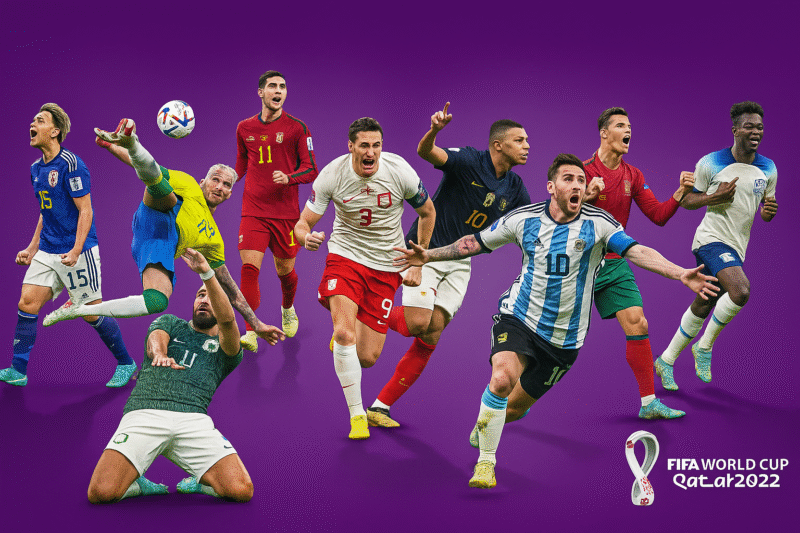Sports, long celebrated as a unifying force that transcends borders, cultures, and ideologies, has increasingly become a stage where global politics plays out. From boycotts and bans to diplomatic gestures and propaganda, politics and sports are deeply intertwined. The influence of global politics on sports can be both constructive and divisive, shaping international relations, athletes’ careers, and the integrity of competitions.
1. Sports as a Political Tool
Governments and political actors often use sports as a tool to promote national pride or assert global influence. Major international sporting events like the Olympics and the FIFA World Cup are often utilized by host nations to showcase economic development and political stability. For instance, the 2008 Beijing Olympics was China’s opportunity to announce its arrival as a global power, while Qatar’s hosting of the 2022 FIFA World Cup demonstrated how nations use sports to shift international perception and build soft power.
2. Boycotts and Sanctions
Global politics can dramatically affect who participates in sports. Boycotts have been a significant tool used to protest against certain regimes or actions. One prominent example is the 1980 Moscow Olympics boycott, where over 60 countries, led by the United States, refused to participate in response to the Soviet invasion of Afghanistan. The Soviet Union and its allies responded by boycotting the 1984 Los Angeles Olympics. These actions highlight how political disagreements can undermine the spirit of international unity that sports are meant to foster.
In more recent times, sanctions have targeted specific nations or athletes. For example, Russia was banned from competing under its flag in multiple Olympics due to state-sponsored doping scandals and political controversies, including the annexation of Crimea and the invasion of Ukraine. Such actions show how politics can directly shape participation in global sporting events.
3. Athlete Activism and Free Speech
In an age of rising social consciousness, many athletes have taken strong political stances on issues such as racism, police brutality, and human rights. Colin Kaepernick’s decision to kneel during the U.S. national anthem sparked a global debate on protest in sports. Similarly, athletes across the world have used their platforms to support movements like Black Lives Matter or to condemn political regimes, often at personal cost.
However, this activism is not always welcome. In some countries, athletes face punishment for speaking out. During the 2022 Beijing Winter Olympics, athletes were warned against political speech, reflecting the constraints imposed by authoritarian regimes. The fine line between personal expression and political sensitivity remains a contentious issue in sports diplomacy.
4. Diplomatic Sportsmanship: “Ping-Pong Diplomacy” and Beyond
While politics can divide, it can also unite through sports. A famous example is the “Ping-Pong Diplomacy” of the 1970s, which helped thaw relations between the U.S. and China during the Cold War. The exchange of table tennis players opened the door to President Nixon’s historic visit to China in 1972, showcasing sports’ power as a diplomatic bridge.
Similarly, joint participation in sports has occasionally served as a gesture of peace, such as when North and South Korea marched under a unified flag during the 2018 Winter Olympics. These moments demonstrate how sports can be a force for reconciliation and dialogue amid geopolitical tensions.
5. Inequality, Migration, and National Identity
Global politics also affects the migration of athletes and issues of nationality. Wealthier nations often naturalize talented athletes from less developed countries, leading to debates about identity and fairness. For instance, African-born athletes frequently compete for European or Middle Eastern countries, sparking discussions about brain drain, dual nationality, and loyalty.
Moreover, political instability, war, and economic crises have forced many athletes to flee their home countries, reshaping their careers and the competitive landscape. The International Olympic Committee even introduced a Refugee Olympic Team to highlight this global issue.
Conclusion
The impact of global politics on sports is undeniable and multifaceted. While sports remain a platform for competition, inspiration, and unity, they are also a reflection of the world’s political realities. From the power struggles of global superpowers to the struggles of individual athletes under repressive regimes, sports continue to be both a mirror and a battleground for political agendas. As such, understanding this intersection is crucial for preserving the integrity of sports while acknowledging their broader societal role.
By Ibrahim Bature Sallama
Empowered Newswire – Sports Editor








